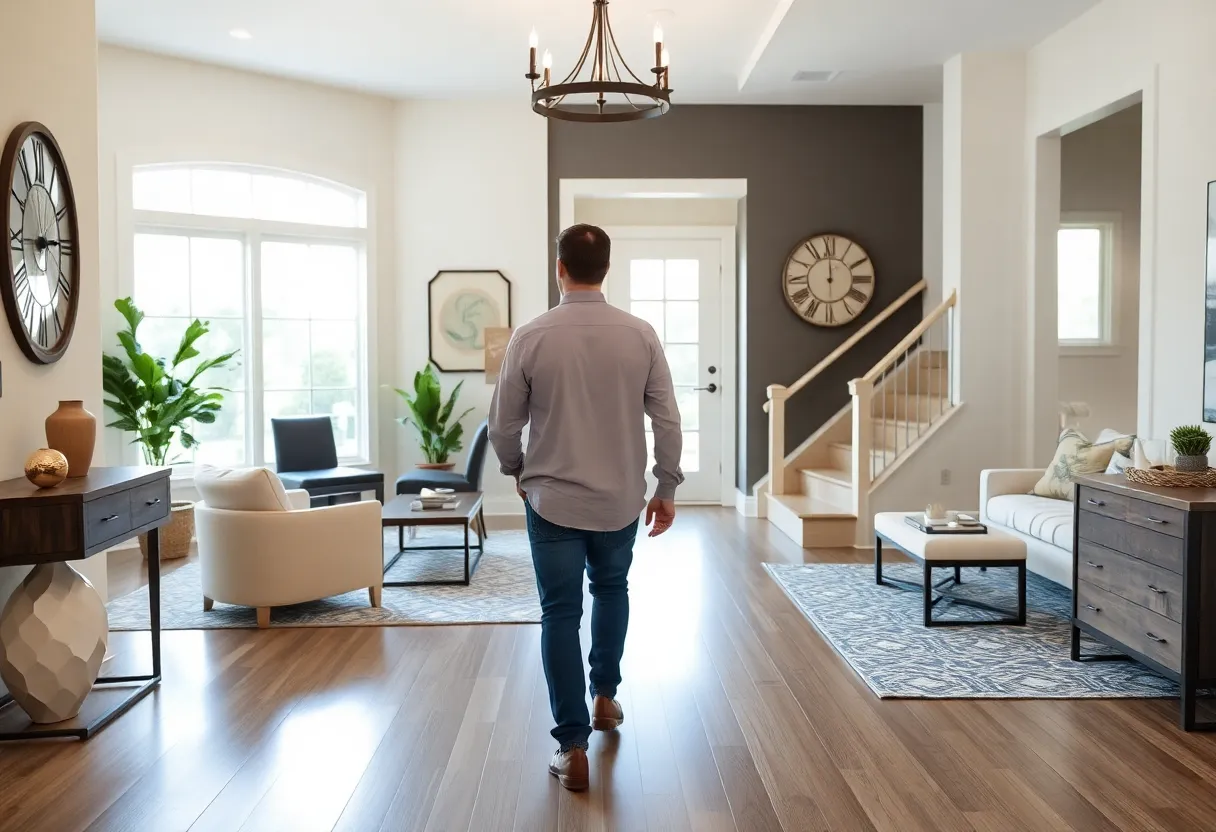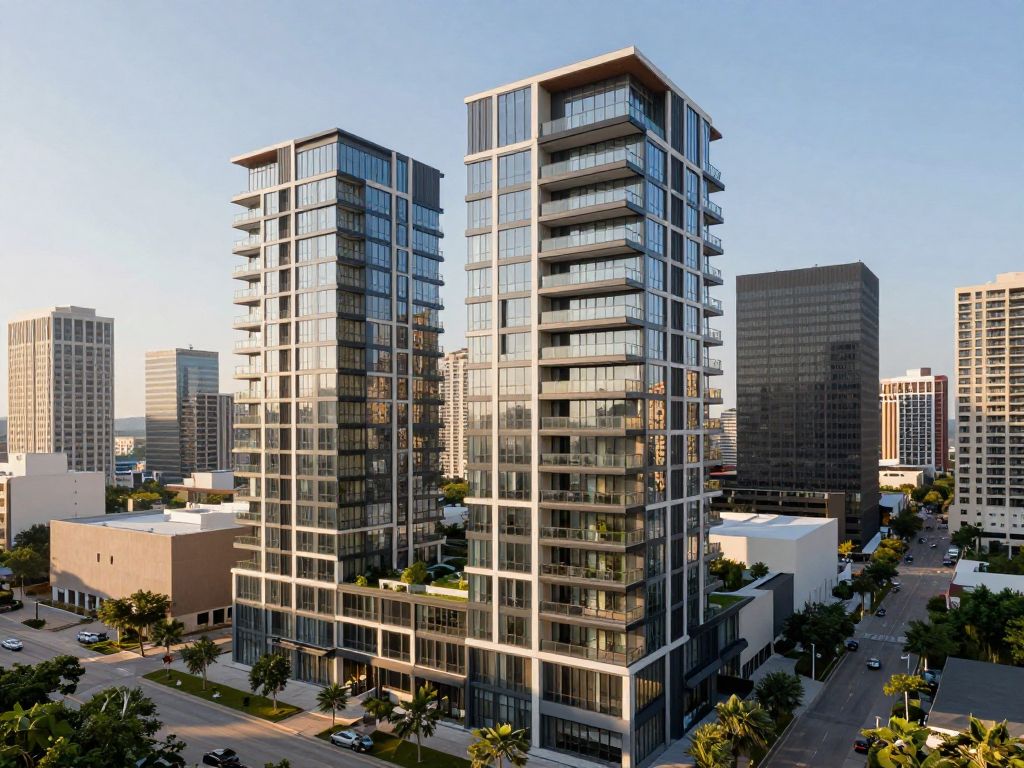How to Effectively Use Open Houses to Your Advantage in the Home Buying Process
Open houses remain a vital component of the home buying journey. They serve as an opportunity to gain firsthand insights into properties, assess neighborhoods, and refine your preferences. However, their effectiveness depends on strategic participation and thorough preparation.
Understanding the Purpose of Open Houses
Open houses are designed to showcase homes to multiple potential buyers within a specific timeframe. They provide an efficient way for sellers to attract a broad pool of interested parties and for buyers to evaluate properties without the pressure of a private appointment. Recognizing this dual purpose is essential to leveraging open houses effectively.
Preparation Before Attending an Open House
Research the Property and Neighborhood
Prior to attending, gather detailed information about the property. Review the listing description, photographs, and any available disclosures. Understand the neighborhood demographics, amenities, schools, and local market trends. This groundwork helps you determine relevance and focus during the visit.
Define Your Priorities and Budget
Clarify your needs—size, layout, features, and location. Establish your maximum budget, including potential expenses like repairs or upgrades. Having clear priorities allows you to assess whether a property aligns with your goals during the open house.
Prepare a Checklist and Questions
Develop a list of features to evaluate and questions to ask, such as property age, maintenance history, energy efficiency, and neighborhood safety. Preparing ensures you capture all essential details and don’t overlook key points during the visit.
Strategies for Attending Open Houses
Arrive Early and Be Punctual
Arriving early offers a more intimate experience with less competition and allows you to observe the property in a more relaxed environment. Punctuality demonstrates seriousness and respect for the seller and agent.
Engage with the Listing Agent
The agent conducting the open house is a valuable resource. Ask pointed questions about the property, its history, and the seller’s motivation. Their insights can provide context that is not available through the listing. Be professional and concise in your inquiries.
Conduct a Thorough Walkthrough
Use your checklist to examine each aspect of the home closely. Look beyond superficial features and assess the condition of structural components, layout flow, lighting, and potential problems. Take notes and photographs where appropriate for later review.
Observe the Overall Environment
Pay attention to ambient factors such as noise levels, cleanliness, natural light, and the presence of other visitors. These elements influence your overall impression and can impact your decision-making process.
Maximizing the Informational Value of Open Houses
Compare Multiple Properties
Attend several open houses across different neighborhoods or price points. This comparative approach clarifies what features matter most and refines your understanding of market standards.
Gather Feedback from Family and Friends
Bring trusted advisors along or discuss impressions afterward. Multiple perspectives can highlight considerations you may overlook and assist in making a balanced judgment.
Assess the Market Conditions
Use open houses as an informal gauge of market activity—how quickly homes are selling, the level of competition, and typical offer prices. This insight aids in crafting competitive offers and negotiating effectively.
Post-Open House Actions
Analyze Your Impressions and Data
Review your notes, photographs, and feelings about each property. Compare features, prices, and immediate impressions to decide which homes warrant further exploration.
Follow Up with the Listing Agent
Reach out to ask for additional information, request a private showing, or express your genuine interest. Open houses are often a gateway to a more detailed discussion and potential negotiations.
Refine Your Home Search Based on Insights
Adjust your criteria and search parameters based on what you’ve learned during open house visits. This targeted approach saves time and increases the likelihood of finding a suitable home.
Common Pitfalls and How to Avoid Them
Getting Emotionally Attached Too Quickly
While open houses can be exciting, avoid making hasty decisions based solely on initial impressions. Stick to your pre-defined criteria and evaluate properties objectively.
Overlooking Red Flags
Don’t ignore warning signs such as poor maintenance, structural issues, or undesirable neighborhood characteristics. Use your checklist to stay vigilant.
Attending Without Adequate Preparation
Unprepared visits often lead to superficial evaluations or missed opportunities. Proper homework maximizes the benefits of each open house visit.
Conclusion
Open houses are a strategic tool in the home buying arsenal. When approached with preparation, professionalism, and deliberate analysis, they can significantly enhance your understanding of the market, property options, and your own preferences. By following structured protocols, you position yourself to make informed decisions, negotiate effectively, and ultimately find a home that aligns with your goals.
Frequently Asked Questions
How can I prepare effectively for an open house?
Research the property and neighborhood beforehand, define your priorities and budget, and prepare a checklist of questions. Having these in place ensures you gather all relevant information during the visit.
What should I focus on during an open house walkthrough?
Examine structural elements, layout, lighting, and condition. Observe the overall environment, including noise and cleanliness. Use your checklist to stay organized and thorough.
How do I follow up after attending an open house?
Review your impressions and notes, compare properties, and contact the listing agent for further info or private showings. This follow-up helps refine your options and move forward in the buying process.
Can open houses influence market prices?
Yes, open houses can indicate market demand, especially when many buyers attend or homes sell quickly after being listed. This feedback can guide your strategic approach to offers and negotiations.
Key Features of Effective Open House Utilization
| Feature | Description | Importance |
|---|---|---|
| Thorough Preparation | Research properties, define priorities, and prepare questions. | High |
| Strategic Attendance | Arrive early, be punctual, and plan visits across multiple properties. | High |
| Active Engagement | Ask targeted questions and conduct detailed walkthroughs. | High |
| Environmental Observation | Assess neighborhood vibe, noise levels, and property condition. | Medium |
| Post-Visit Analysis | Compare properties, follow-up with agents, and refine search criteria. | High |
Author: STAFF HERE HOUSTON TX WRITER
The HOUSTON STAFF WRITER represents the experienced team at HEREHouston.com, your go-to source for actionable local news and information in Houston, Harris County, and beyond. Specializing in "news you can use," we cover essential topics like product reviews for personal and business needs, local business directories, politics, real estate trends, neighborhood insights, and state news affecting the area—with deep expertise drawn from years of dedicated reporting and strong community input, including local press releases and business updates. We deliver top reporting on high-value events such as Houston Livestock Show and Rodeo, Art Car Parade, and Chevron Houston Marathon. Our coverage extends to key organizations like the Greater Houston Partnership and Houston Area Urban League, plus leading businesses in energy and healthcare that power the local economy such as ExxonMobil, Schlumberger, and Houston Methodist. As part of the broader HERE network, including HEREAustinTX.com, HERECollegeStation.com, HEREDallas.com, and HERESanAntonio.com, we provide comprehensive, credible insights into Texas's dynamic landscape.





